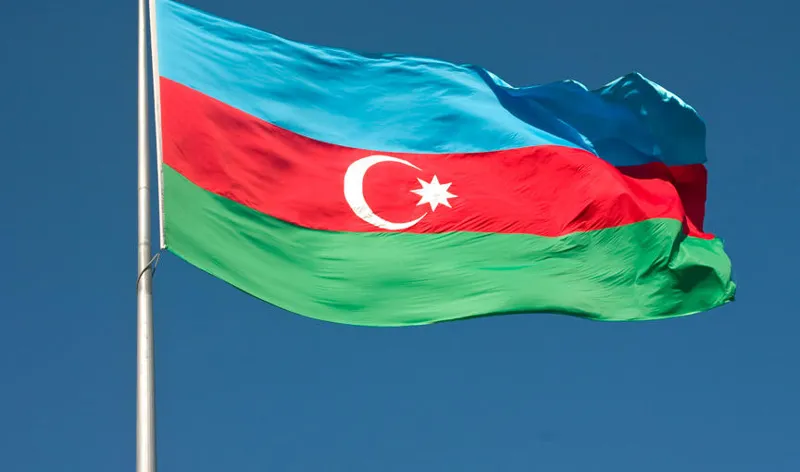
Geopolitical developments in the last two years in Eurasia has had a serious impact on global supply chain, along with all the other political and economic processes. It is observed that a large amount of cargo flow has been diverted from the north to the south in the East-West direction. Following the change of the direction of international cargo transportation, the traditional transport and cargo transportation routes have become less relevant.
In that context, Azerbaijan’s favorable geographical position started to serve to enhance the development of interregional connectivity. Given its location at the crossroads of Europe and Asia, Azerbaijan has therefore become a critical junction in the Eurasian connectivity. While the strategic position gives it the potential to serve as a land bridge connecting Asia to Europe for trade routes, Azerbaijan takes advantage of this significant opportunity to boost its transit capacity.
By improving its transportation infrastructure in recent years Azerbaijan has developed various large-scale projects, including the Baku-Tbilisi-Kars Railway and the Port of Baku as important segments of the East-West and the North-South corridors, namely the Middle Corridor and the International North–South Transport Corridor (INSTC). In addition, the creation of a free economic zone around the Port of Baku has given a new impetus to the increase in cargo transportation.
The Middle Corridor passing through Kazakhstan, the Caspian Sea, Azerbaijan, Georgia and Türkiye links China to Europe. The countries along the Middle Corridor, Azerbaijan and Kazakhstan in particular, significantly benefit from the project, given their landlocked position.
After the outbreak of war between Russia and Ukraine which has a huge impact on Eurasian connectivity, several companies are compelled to seek alternatives. Under these circumstances, the Middle Corridor has been significantly gaining importance in regard to trade between Europe and Asia. In other words, the Middle Corridor, where Azerbaijan, Georgia and Kazakhstan occupy a key place seems the only viable alternative to the traditional northern route through Russia.
Besides the huge economic opportunities, there are challenges and constraints the Middle Corridor has faced recently. There are a number of impediments to the development of the Middle Corridor: these are both the institutional and physical. In outline, to meet all these demands emerged from the disruption in traditional routes, first of all, it requires to identify some institutional problems and secondly some major physical infrastructure bottlenecks along the corridor.
All of this necessitates huge infrastructure investment in the Middle Corridor and coordination among countries. In this context, the decision to establish a joint venture between railway companies of Azerbaijan, Georgia and Kazakhstan is of utmost importance. Azerbaijan and Georgia’s cooperation in this regard is remarkably exemplary. “Azerbaijan and Georgia are close partners. Our partnership is not limited to energy. Thanks to this cooperation, we were able to present our countries as a single, strategically important team in Europe”, as mentioned by Azerbaijani President Ilham Aliyev.
President Ilham Aliyev periodically addresses this issue and recently he once again emphasized: “The Baku-Tbilisi-Kars railway is a historical project. As a result of the successful implementation of this project, Azerbaijan will further strengthen its position in this region. We are currently creating a North-South transport corridor and have already completed all the necessary work on our territory. Thus, Azerbaijan, which does not have access to the open seas, will become a transport and logistics center in the Eurasian space”.
The completion of the Baku-Tbilisi-Kars project is indeed worth noting. This railway is definitely of exceptional importance for turning Azerbaijan into a regional transport hub. It should be noted that this road, commissioned in the end of 2017, is the shortest and most reliable route between Asia and Europe. And this railway line connecting China and Europe brings for Azerbaijan, Georgia and Türkiye great economic and political dividends. The expansion of this project will be completed soon and it will be possible to carry cargo from one million to five million tons, which, of course, will help to strengthen and promote the transit potential of the Middle Corridor.
To conclude, in the context of new challenges of the globalizing world, the role of Azerbaijan in tandem with Georgia in Eurasian connectivity is growing, which also gives the entire region a special geopolitical weight. Particularly, in past two decades, during the presidency of Ilham Aliyev, Azerbaijan has been achieving its goal in enhancing Eurasian connectivity. President Aliyev’s strategic vision and personal commitment to the international transit corridors has produced this outcome. He made every endeavor to turn Azerbaijan into a transit hub and one of the important players in the supply chain in Eurasian landmass. More precisely, President Ilham Aliyev's decisive and calculated approach played an important role in the transformation of the Middle Corridor project from an idea and concept into a real project.
Naghi Ahmadov, a leading advisor at the Baku-based Center of Analysis of International Relations (AIR Center)
v-if="article.gallery" v-html="article.gallery"
(adsbygoogle = window.adsbygoogle || []).push({});